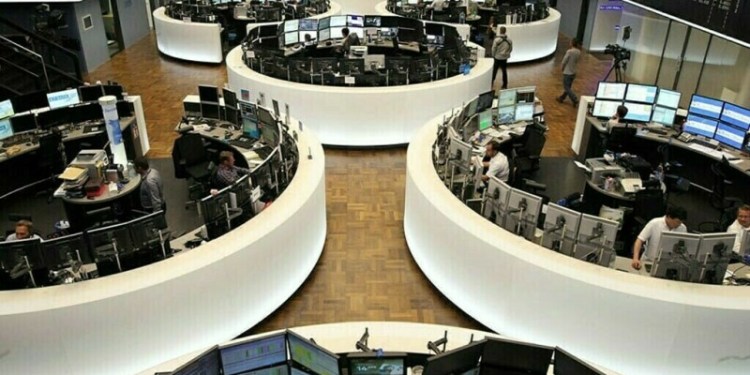NEW YORK: Anxiety about a global trade war spurred demand on Monday for the Japanese yen and Swiss franc, while the euro remained under pressure due to a dispute in Germany’s governing coalition and expectations the European Central Bank will hold interest rates steady into 2019.
In a quiet trading session, the dollar was supported by some safe-haven demand and signals from the Federal Reserve that it would increase overnight borrowing costs due to a tightening labor market and rising inflation.
The ongoing trade dispute between the United States and China knocked the yuan to 6.4600 per dollar, its weakest in five months in the offshore market.
On Friday, the White House enacted tariffs on $50 billion in Chinese goods. Beijing quickly responded with a 25 percent levy on 659 US products, worth $34 billion, ranging from soybeans and autos to seafood.
“It’s tough to say whether it will spiral further because it’s so fluid. It does weigh on sentiment at times,” said Eric Viloria, currency strategist at Wells Fargo Securities in New York. “Our base case is that there won’t be a trade war.”
The yen was up nearly 0.2 percent against the dollar at 110.48 yen and about 0.1 percent higher versus the euro at 128.32 yen in early US trading.
The Swiss franc notched a 0.3 percent increase against the greenback at 0.9943 franc and a 0.2 percent gain versus the euro at 1.1550 franc .
The dollar was steady against the euro at $1.1615 after the Fed flagged more rate hikes are coming and the ECB signaled it will likely keep rates near a record low into the summer of 2019.
The greenback is “in a consolidation phase in the near term,” Viloria said. “People are looking for economic data that show more improvement outside the US”
The euro has stabilized after on Thursday suffering its biggest one-day drop against the dollar since Britain voted to leave the European Union two years ago.
ECB governing council member Vitas Vasiliauskas said on Monday the central bank may decide on a rate increase toward the autumn of next year.
Tensions with the governing coalition in Germany also weighed on the single currency. Chancellor Angela Merkel’s Bavarian allies may defy her by implementing a plan to limit immigration at the German border and risk destabilizing her three-month-old coalition.
Speculators further pared their net longs in the euro last week, retreating from a record high reached on April 20, according to calculations by Reuters and Commodity Futures Trading Commission data released on Friday.
Source: Brecorder

























